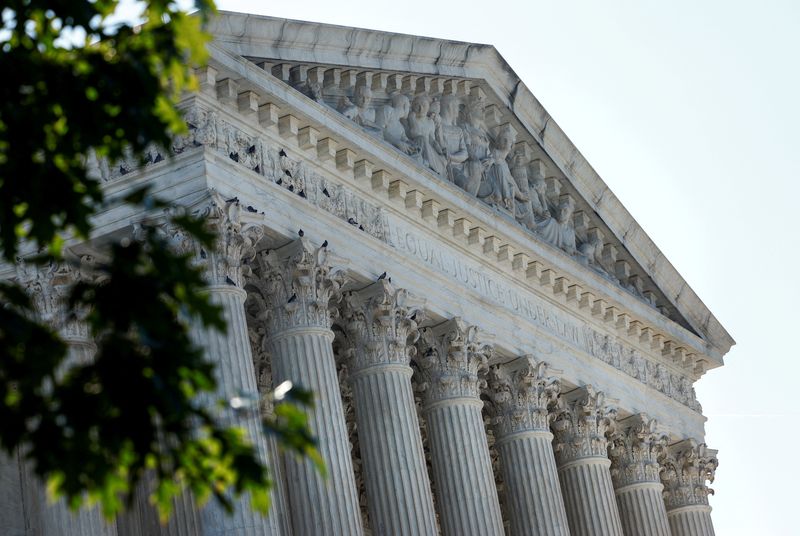By Andrew Chung
(Reuters) -The U.S. Supreme Court on Thursday opted not to intervene in a legal fight over Louisiana's disputed map of its six congressional districts, potentially delaying the adoption of one to replace a Republican-crafted version that a judge found unlawfully diluted the clout of Black voters.
The Black voters and civil rights activists who challenged that map had asked the Supreme Court to lift a lower court's order that has blocked U.S. District Judge Shelly Dick from proceeding on choosing a replacement map for Louisiana's U.S. House of Representatives districts.
But the Supreme Court turned down the request, leaving uncertainty over the timing of a replacement map that may include a second majority-Black congressional district - a feature that would benefit Democrats as they seek next year to take back control of the House from Republicans.
No justice publicly dissented from Thursday's action.
Dick found last year that the map approved by the Republican-controlled state legislature likely violated the Voting Rights Act, a landmark 1965 law that bars racial discrimination in voting.
Litigation in the dispute also continues at the New Orleans-based 5th U.S. Circuit Court of Appeals, where Republican Secretary of State Kyle Ardoin has appealed Dick's preliminary injunction that blocked the legislature's map. The injunction directed the legislature to create two House districts, rather than just one, where Black voters would represent the majority of voters. Black voters tend to favor Democratic candidates.
The Louisiana legislature passed the map in February 2022. Democratic Governor Jon Bel Edwards then vetoed it, criticizing the plan for failing to include a second Black-majority district considering that Black people comprise almost a third of the state's population. The legislature voted to override the veto.
Liberal Justice Ketanji Brown Jackson, in a brief opinion concurring in Thursday's decision, said that because the state has said its legislature will not consider drafting a new map that complies with the Voting Rights Act while litigation is pending, Dick will "presumably resume the remedial process" while the 5th Circuit considers Louisiana's appeal.
The plaintiffs who challenged the Republican-drawn map said it unlawfully packed large numbers of Black voters into a single district and dispersed the rest into the five others in numbers too small to enable them to elect their preferred candidates.
Stuart Naifeh, a lawyer with NAACP Legal Defense & Educational Fund representing some of the plaintiffs, expressed disappointment in Supreme Court's decision, calling the 5th Circuit's action in the dispute "entirely inappropriate and unwarranted."
Abha Khanna, a lawyer for other plaintiffs in the case, added, "While we are disappointed that the Supreme Court will allow the 5th Circuit's last-minute cancellation of the remedial hearing to stand, we will continue to pursue every avenue to secure relief for Louisiana voters as soon as possible."
A spokesman for Ardoin's office declined to comment.
The Supreme Court in June ruled in a similar case against a Republican-drawn map in Alabama that a lower court had concluded unlawfully curbed Black voters from electing a candidate of their choice.

After issuing the Alabama decision, the justices reactivated litigation in the Louisiana case. Dick scheduled a hearing to select a new map. Ardoin asked her to hold a trial instead. Dick refused, noting the case had already been "extensively litigated" and that the legislature had been given a chance to draw a new map, but failed to do so.
Ardoin and Louisiana Attorney General Jeff Landry then asked the 5th Circuit to force Dick to cancel the scheduled hearing. The 5th Circuit granted that request, calling Dick's refusal a "clear abuse of discretion."